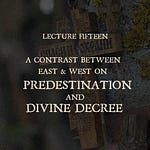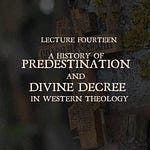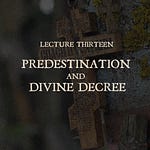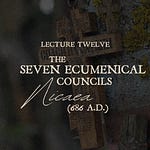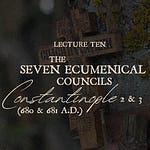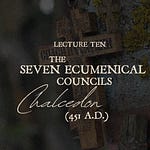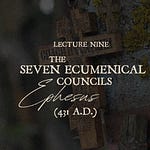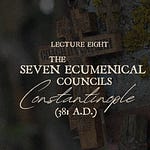These are transcripts from a spoken lecture. The audio is attached to this lesson. If there is any confusion from reading the transcript, please refer to the audio for clarification.
This is going to be the first of several sessions focused on the seven Ecumenical Councils of the early church. If you haven’t watched the introductory session, you might want to do that where I go through various terms and concepts. In that session, I already talked about these Ecumenical Councils of the church. The idea being that ecumenical refers to the entire house.
We had already seen in the book of Acts that there was precedent for the bishops of the church, the apostles, coming together and discussing matters that needed to be settled. For example, do we require Gentiles to be kosher now that they’re converting to the faith? That Synod, that gathering, decided what the proper practice was in terms of the Gentiles. It “seemed good to them and to the Holy Spirit,” and that was the sort of framework that we begin to see in these synods.
This would be far from the last time that the authorities, the church, the bishops, the priests, the clergy, would gather together in order to discern what seems good to them and to the Holy Spirit. However, most of the synods, many of the synods were often regional councils. They had to do with very localized issues, but every now and then, there would emerge a controversy that was so central to the Christian faith and so dangerous to both the church and to the Empire, oftentimes, that it threatened to rip the house apart. For that reason, there would be called an ecumenical council, one where bishops and representatives from the whole house were called together in order to adjudicate the matter.
One of the things I had also mentioned in that introductory section, and this is critical to keep in mind when talking about the Ecumenical Councils, is that the Eastern fathers understand the faith to be complete. I had mentioned that in the Nicene Creed, there’s the mention of “one holy Catholic and Apostolic Church.” And Catholic here does not refer to the Roman Catholic Church. Rather Catholic in this context, in the Greek context, Catholic comes from the word “katholos,” referring to “according to the whole.” In other words, what this means is it is a confession that the faith is complete. It is lacking in nothing.
This is reflected in the belief of the Eastern Church Fathers. There has been “a faith once given over to the saints,” to quote Saint Jude, and they believe that this faith is complete. It is lacking in nothing. And so in the Ecumenical Councils, they don’t come together as philosophers or theologians, saying, “Hey, that’s an interesting question. Nobody’s ever thought of that before. Let’s put our heads together and come up with a new idea, a new insight, to solve that new problem.” Instead, the question that they’re always asking is, “What did we receive? What was the faith once given over to the saints that was whole and complete?”





